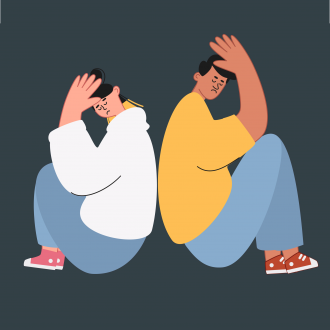The COVID-19 pandemic is having a huge impact on how young people can interact with each other. Many schools, sports clubs and youth centres are closed as well as exhibitions, cultural centres, theatres, cinemas, cafes, or other places where adolescents like to meet. It will not come as a surprise that young people tell us that their feelings of loneliness have increased compared to before the pandemic. Because loneliness reflects what we think is the quantity and/or the quality of our social relationships. It is normal to feel lonely at times. Most people experience loneliness at some point in their lives, and we all have felt sadness and frustration in our lives, and now during the pandemic most likely more than ever. Even though we all have smartphones and technology to stay in touch with each other, we can only admit that we all miss meeting and touching each other. This online document gives a number of research based recommendations and tips for young people who are struggling with feelings of loneliness and disconnection. These guidelines draw on both existing research and recent discussions with young people also from our Fit 2 Belong project group and they have been developed in collaboration with researchers and clinicians with expertise in loneliness and social isolation in adolescents, including Professor Pamela Qualter (University of Manchester). You can find the guidelines here.
